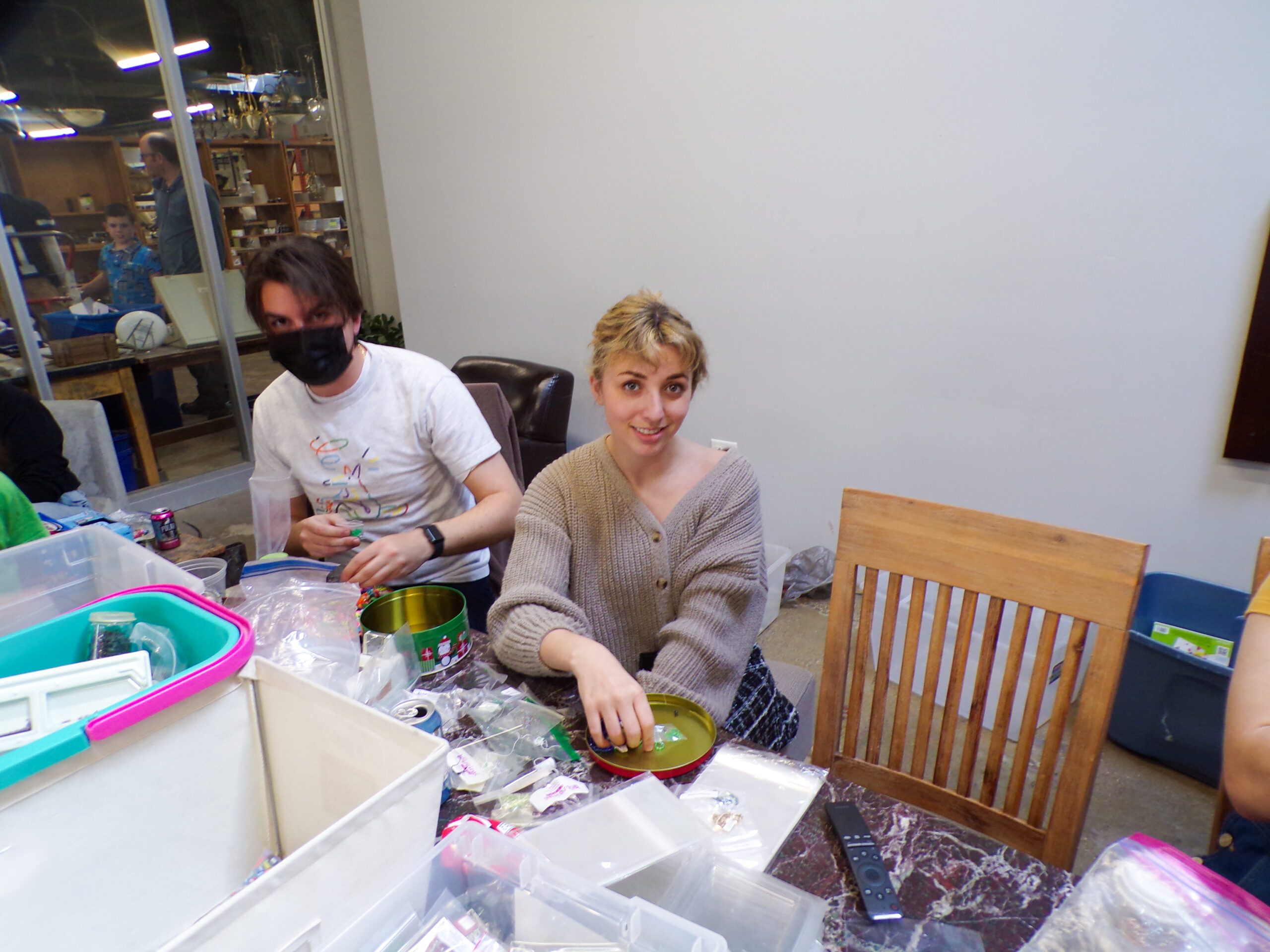Some registered student organizations (RSO’s) are receiving less funding in the 2022-23 school year than in previous years due to an increase in the number of RSO’s, The Phoenix found in an investigation.
The Student Government of Loyola Chicago (SGLC) plans to increase the amount of funding available for registered student organizations (RSO’s) next year, after pushback due to lack of club funding.
SGLC, who oversees the allotment of money for RSOs from the student activity fund, said they are aware of the decrease in budgets this year, pointing to the increase in the number of funding requests from RSO’s in 2022.
RSO’s are organizations initiated by student interest, rather than supported by the university. In order to register your organization, you must file paperwork provided by the university and adhere to listed guidelines, according to the Center for Student Engagement’s website.
Mereya Riopedre, vice president of SGLC, and Luke Schmidt, chief financial officer of SGLC said they are both very familiar with the process of allotting money to different RSOs from the student activity fund, which contains the money set aside by the university specifically to be granted to student organizations.
In order for an RSO to receive money from SGLC, they must fill out a form requesting money and attend a hearing day where they present their plans for the use of the money to members of SGLC, according to Schmidt. This process happens once every cycle.
Schmidt said a cycle is the amount of time an organization can request money throughout the year. There is $70,000 allotted by SGLC to spot cycles, which occur twice each semester. Schmidt said this money is reserved for smaller events each semester. Student Budget Requests are made by clubs once each semester, and allot money for larger events occurring the next semester.
Currently, SGLC receives a set amount of money at the beginning of each school year, which is to be allotted as they see fit over the course of both the first and second semesters. This is decided by the allocations committee of SGLC.
“The budget previously sat at $490,000, and then in 2020 we spent much less of our usual because of COVID,” Riopedre said. “We got an additional $100,000 for fiscal year 2021 in rollover funds. In SGLC, we advocated to retain that amount for this year, which is why we have that $590,000 amount for fiscal year 2022.”
SGLC said this school year they were given a budget of $590,950, solely to be given to student organizations. Schmidt said while they expected more events this year following the slowing of the COVID-19 pandemic, there wasn’t much they could do to prepare for them without an increase in the budget.
The $100,000 was the only increase in SGLC’s budget in the past five years, according to documents obtained by The Phoenix.

Heather Higgins | The Phoenix
Riopedre and Schmidt said there is already a plan in place for the 2023-24 school year, which will change the money they are budgeted for student organizations from being a set amount each year to being proportional to the number of students in the student population. This plan will not begin until the fall semester of 2023.
“We have been having record high admissions as they have been saying for year after year after year, but our fund wasn’t increasing,” Schmidt said. “That means more students, more organizations, more events, still the same amount of money. We did finally get approved that the money will scale with the student body now.”
The university admitted 2,654 new students in the fall semester of 2017. In 2020, the year of the pandemic, only 2,129 new students were admitted. In 2022, the university admitted 2,864 new students.
This plan, proposed by SGLC, was approved April 5 by Dr. Keith Champagne, vice president for student development.
“[The] amount for the upcoming year will be calculated based on undergraduate enrollment of previous year times $50.00,” Champagne wrote in an email to The Phoenix. “This will include all funds under SGLC allocation committee.”
Champagne said the rate per student will increase at the same rate as the increase in the Student Development Fee for the upcoming year. The Student Development Fee is a fee included in the cost of tuition for all students enrolled at Loyola.
This plan will be implemented starting next school year, as the university runs on a fiscal year schedule rather than a semester-by-semester basis.
“I get that the cultural organizations are doing really good things with the money, and they have huge turnouts, which is phenomenal,” Schmidt said. “I love the engagement and the diversity, but every single student pays the student activities fee, so every single student should have access to the money.”
John Mbi, the president of the African Student Association (ASA), said the organization received zero money from SGLC this year. This is despite having requested over $12,000 to fund events they had previously successfully received funding for according to Mbi, a senior biology major.
ASA requested $9,730 to fund a cruise dinner for Loyola students, and another $2,300 for an annual cultural fashion show.
SGLC said the request for the cruise dinner was denied because they are prioritizing on campus events. While the fashion show request was denied because ASA did not provide proper receipts with their proposal, Schmidt said.
Schmidt said one of his jobs is to find a way to make the distribution of money more even and make sure even the smaller RSOs receive all the money they want to get the most out of their college experience.
Other organizations did not respond to The Phoenix’s requests for comment.
“My goal is to impose a price ceiling on how much money each organization can get, or kind of just figure out a way to guarantee each RSO X amount of money,” Schmidt said.
Cultural organizations are receiving a majority of the money from the budget this year, as well as in previous years, according to Schmidt.
“Cultural organizations receive a very, very high amount of money,” Schmidt said. “I understand that they really want this money and this money is going to good use, but in my opinion it’s not really fair to any of the other organizations.”
Schmidt said he appreciates what the cultural organizations are trying to budget for, but his job is to make sure everything is distributed fairly.
Riopedre and Schmidt said RSOs usually request much higher amounts of money than what is possible to receive, but SGLC always does its best to get students what they need.
“A lot of those organizations are requesting $40,000 to $60,000 a cycle, and the cycle is only $70,000, so obviously a lot of that is going to be cut,” Schmidt said. “If we gave them all the money they want, there would be no money left for anybody else.”
Riopedre and Schmidt said there are more RSOs this year than in previous years, which gave them a strong argument for why the budget should be increased in the coming year. So far this year, 95 organizations have requested money from SGLC according to Schmidt. 10 organizations requested over $15,000, seven requested over $25,000, and one requested over $95,000 according to Schmidt.
Riopedre said she has become involved with a variety of student organizations, and she wants to make sure the door is open for other students to do the same as the organizations made her college experience.
“We want student organizations to host as many events as possible,” Riopedre said. “I know that the more events we are able to help these RSOs create, the more that students can find a place for themselves on campus.”
In order to receive money for something, there is a list of guidelines which must be followed. Riopedre and Schmidt said while some of these rules are put in place by SGLC itself, others are required by the university.
For example, if an RSO is requesting money for t-shirts for its members, the design must include the year, and be approved by SGLC before being ordered.
Any event hosted by an RSO must be catered by Aramark, the company which provides all food services for the university’s dining halls and events, The Phoenix reported. This raises issues for RSOs, because the cost of Aramark catering is much higher than other catering companies, according to Schmidt.
“We are aware that this is causing some budget constraints, especially because Aramark is much higher than many other vendors and some RSOs argue that the quality of the food is much lower,” Schmidt said. “We are actually in meetings advocating for some leeway or some way for RSO’s to get more access to food, but we are pretty much hitting a wall.”
Students have expressed a variety of issues with Aramark’s catering services, ranging from the high cost of the service to the lack of accommodations the company is willing to make for dietary restrictions, The Phoenix previously reported.
Aramark did not respond to The Phoenix’s requests for comment.
All of these requirements can be found in the RSO handbook, according to Schmidt.
The SGLC said these requirements help them to budget money, and make sure it gets into the hands of the RSOs who really need it. However, they also said they understand it is the right of every student to receive money from the SGLC budget, as every student enrolled in over 12 credit hours pays a student organization fee included with their tuition cost.
“Since every student is paying, every student has to have equal rights to that money,” Schmidt said.
SGLC said they hope they can become more connected with the student body, as they want students to understand they are on the same team.
“I do think that for the last couple of years, one of the things that I am always stressing is that we do want to get more connected with the students,” Schmidt said. “As a student government, we should be listening to the students. That’s why I am trying to go out and meet with many of these organizations.”
-

Lilli Malone is the News Editor of The Phoenix and has written for the paper since the first week of her first-year. She is studying journalism, criminal justice and political science, is on the board of SPJ Loyola and was previously the deputy news editor of The Phoenix. She has worked as a Breaking News Correspondent for The Daily Herald, and has interned at Block Club Chicago, Quotable Magazine, and UCLA. Originally from Columbus, Ohio, Malone enjoys traveling, reading, and telling the stories of Loyola and Rogers Park community members.
View all posts











